New Trip Report: Ethiopia
Curtis Hart just sent me an impressive report of his 6 week trek through Ethiopia
Ethiopia, 2015: Curtis Hart, 6 weeks & 72 species including Bale Monkey, Speke’s Pectinator, Naked Mole Rat, Large-eared Giant Mastiff Bat, Caracal, Gerenuk and Wild Dog.
Jon
20 Comments
-
-
vdinets
Impressive indeed! Congratulations.
Ethiopian warthog is the expected species at some of the locations listed. I’ll look at my bat notes from Sof Omar when I get home in a few days.
Interesting how things change: for example, in 2009 I saw zero brush hyraxes at Lake Abiata-Shala, but literally herds of them at Sof Omar. No pectinators at Erta’Ale (although we climbed it by ourselves), but a few near the waterfall at the main road from Berahile to Dallol,
Also, I recently looked into the hares issue, and will let you know what I came up with when I get home.
But the main question is, where’s the E. Guinea trip report? I’ve never heard of anybody mammal-watching there.
-
-
cmh78
The Warthog in the photo was from the road between Harenna Forest and Negele. N 04 42 25.7, E 39 11 05.7 We saw 2 groups in about 20 minutes.
I put a pretty big dent in the Bioko report last night. I am still waiting on DNA results on some rodents, and due to an agreement I signed, the trip report has to be ok’d by the BBPP.
Thanks,
Curtis
-
vdinets
Have you seen this paper? (I haven’t.)
D’Huart, J. P. & Grubb, P. 2005. A photographic guide to the differences between the Common warthog (Phacochoerus africanus) and the Desert warthog (Ph. aethiopicus). Suiform Soundings 5 (2), 4-8.
-
-
-
José Luis Copete
Dear Curtis,
I would be interested to receive pictures for HMW-06, of some of the rodents you photographed, as the Ethiopian African Mole Rat, and Speke’s Pectinator.
Please contact me to my email address, jlcopete at hbw.comJosé Luis
-
-
-
tembo10
Looks very much like a Desert Warthog to me. Here’s a short report that shows how to separate the two species.
http://wildsolutions.artexion.nl/wp-content/uploads/De-Jong-et-al-2009-desert-warthog-Tsavo-NP1.pdf
Charles
-
dhuartjp
Congratulation and thanks for this useful info. Our group of researchers is still looking for more pictures of warthogs with GPS coordinates in order to complete our distribution maps in Kenya, Ethiopia and Somalia.
vdinets (above) asked for a link to the photographic guide…here it is: https://www.dropbox.com/s/wj2e5sgq9p6f4r5/Suiform%20Soundings%205(2).pdf?dl=0
and another one on the desert warthog: https://sites.google.com/site/wildpigspecialistgroup/home/Phacochoerus-aethiopicus
Thanks beforehand & kind regards -
-
cmh78
The coordinates are correct, in my phone I had it labled W of Warthog, as I marked it as we were driving away. We were less than 2 k away, so it is relatively accurate in terms of range maps. I just checked some photo dates, and you are right, it is on the day we drove between Negele and Yabello. Sorry for missing that the first time around. Do you need an original size photo or anything as well? I can be reached at curtisfrommichigan@yahoo.com
-
-
vdinets
Here’s a list of bats we got in Sof Omar in 2009. There were some workers installing electric lighting there; I don’t know if it was ever turned on and what effect it had on the bats. We explored the cave very thoroughly, going into every side crack we could squeeze in.
Rousettus aegyptiacus, Rhinopoma sp. (possibly R. macinnesi), Taphozous perforatus, Nycteris macrotis, Rhinolophus clivosus, R. hildebrandti, Hipposideros caffer, H. megalotis, Miniopterus inflatus, Otomops martiensseni.
We also got a few vespertilionids, but I never identified them properly. I think I’ll try to go over my notes and do it in September if I have time.
We saw a completely black slender mongoose in Harenna; took me a while to figure out what it was.
-
-
vdinets
The cables along the walls are from a much older lighting attempt, built by Soviet engineers during the Derg era. Never worked, either. I guess the cave has an unusually powerful protector spirit.
-
-
-
Yvonne de Jong
Great report, thank you very much for sharing Curtis. The desert warthog photo and additional information is very useful ….as well as the primate data. Did you take pictures of primates during your trip (including the galagos) by any chance? Thank you!
-
-
Yvonne de Jong
Thank you for your reply Curtis. Tom Butynski and I are interested in the biogeography, diversity and conservation of the primates of Eastern Africa (www.wildsolutions.nl). Any chance we can have a look at the photos? Thank you! Best, Yvonne (yvonne@wildsolutions.nl)
-
-
-
Chris Roche
Hi Curtis – great report and what an impressive list! You certainly saw some great stuff – including that wild dog in Harenna.
I run a couple of pages on social media that attempt to popularise mammals to both citizens and visitors to the countries, as well as gather data on distribution and occurrence, and present easily accessible visual material on different subspecies/races.
http://www.facebook.com/EthiopiaMammalAtlas
http://www.facebook.com/CongoMammalAtlas
http://www.facebook.com/RwandaMammalAtlasWould you be at all interested in contributing some of your pics to the Ethiopia page? Your Desert Warthog would be a first for our page for example. As would most of the bats, several of the rodents, the galago, the porcupine and some others too.
I’d love to hear from you if you are interested.
best
-chris-
Leave a Reply
You must be logged in to post a comment.


vnsankar123
The warthog in the photo at the end looks kinda like Desert Warthog to me, with the drooping warts. I know someone else who saw them in Alledeghi plain, if this was where the sighting was.